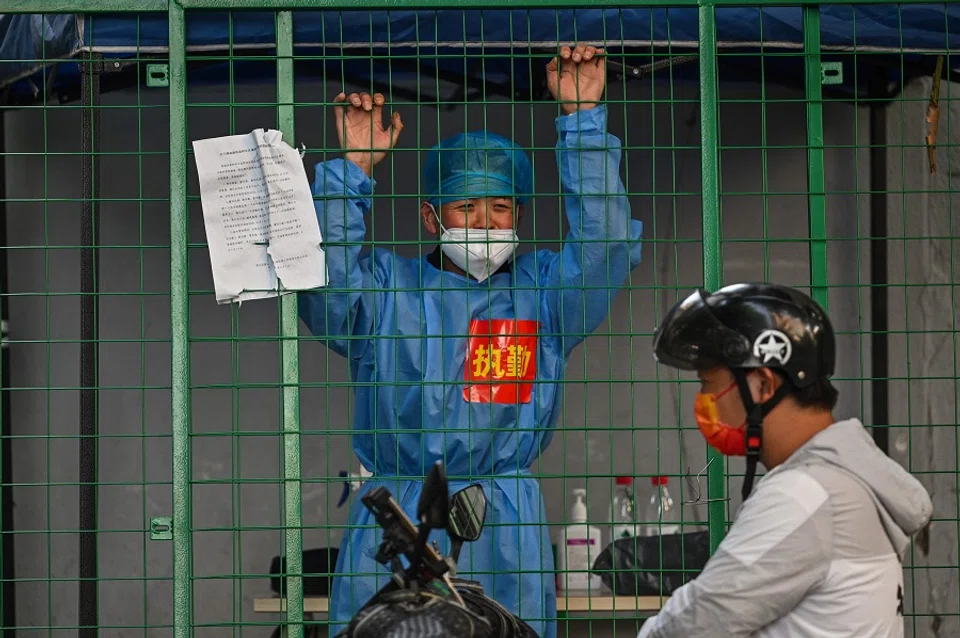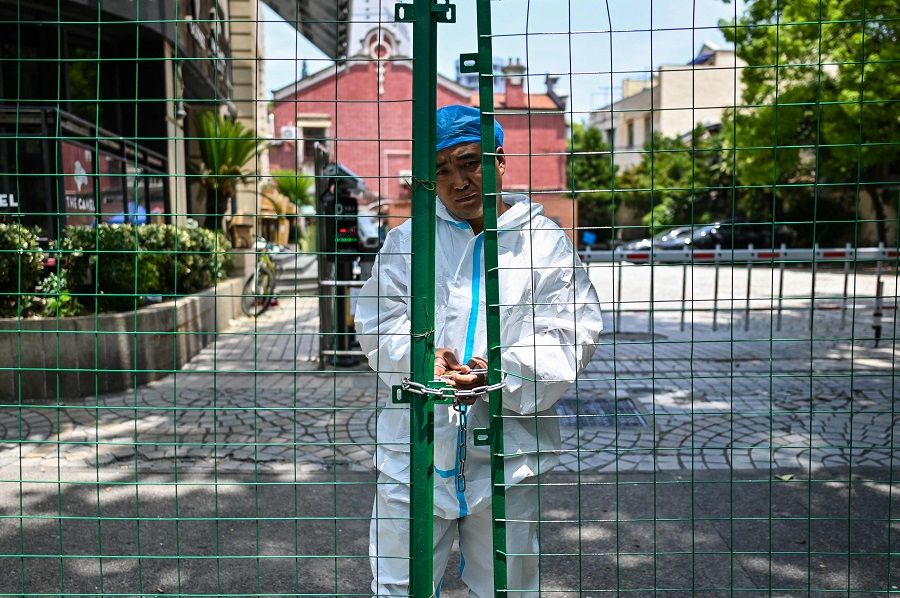Singaporean in China: The Chinese netizens speaking up for their fellow men

About a month ago, a WeChat group chat I was in which had about 200 members was suddenly shut down. Apparently, one of the members had forwarded a sensitive article to the group chat. Her account was temporarily suspended, and she could only join the rest of us in the new group chat after the ban was lifted two weeks later. When the incident happened, nobody showed any anger, at least not openly. The administrator of the chat, who was already rather uptight about the topics we could discuss to begin with, started self-censoring even more by reminding us now and again not to talk about certain hot topics, lest our group chat gets shut down again.
Such situations are not unique to WeChat, China's most popular messaging app developed by Tencent and first released in 2011. All Chinese social media platforms are subjected to the same kind of censorship. Sometimes, the platforms delete inconvenient posts. At other times they allow the posts but deliberately limit the audience reach.
Not afraid to speak up
It is no secret that China practises censorship. The problem has been frequently highlighted and criticised by the more liberal democratic countries for decades, and continues to be a hotly debated issue in and outside the country. Every country has its own reasons for setting the extent to which they restrict communication. Supporters of it believe that censorship is necessary to maintain unity and stability of the country.

These methods are indeed very effective. Two months ago, videos and photos of hundreds of children crying in a Shanghai hospital ward circulated on social media. The children tested positive for Covid-19 and were forced to be separated from their parents. When I told my part-time cleaner Ayi about this, her first reaction was disbelief - she genuinely did not believe that this could happen in her country because she has a lot of faith in her government. "It must be a fake video," she said, "nowadays, some people have nothing better to do and just want to stir trouble by creating such fake videos. It's very easy to make fake videos now, you know?" Apart from this, she also insisted that the Covid-19 virus was brought into China by American soldiers when they visited Wuhan in October 2019, an information she acquired while surfing Chinese internet.
While growing up and living in such a society has caused some of the people to become obedient and loyal citizens, there are many others who are not afraid to speak up when they are outraged by certain incidents, the most recent being an assault on four women in Tangshan city.
On 10 June, a group of men brutally beat up four female diners in a barbecue restaurant in Lubei district in Tangshan, a city in northern Hebei province. The incident caused an uproar after CCTV footage of the violence went viral on social media, sparking discussions on gender violence and gang crimes.
Had the tens of thousands of netizens not made their voices heard, would these actions have been taken so swiftly?

Immediately after the attack, authorities claimed that two of the women were admitted to hospital and were in a stable condition while two others sustained minor injuries. However, netizens did not buy it and took to Weibo, China's Twitter-like platform, to openly question and pressure the officials to release more information on how the victims are recovering and look into the possible lapses in the work of the local police. It quickly became a trending topic for days, and Weibo suspended more than 8000 accounts and shut more than 1000 accounts for spreading falsehood and disrupting order. I do not doubt that many of these posts were in fact fanning the flames without being rooted in facts, but I also wonder if some of them did indeed raise some difficult questions?
Online criticism pressures authorities to act
Eventually, the authorities announced that five police officials in Tangshan would be investigated, and a deputy police director was removed from his post. Had the tens of thousands of netizens not made their voices heard, would these actions have been taken so swiftly?
This is not the first time that public attention has pressured the authorities into responding promptly. In February this year, hundreds and thousands of Chinese netizens also spoke up when the video of a woman being chained up in a shack came to light, urging authorities to investigate and arrest human traffickers. Similarly, numerous posts were deleted by the various social media platforms as the saga unfolded, but even as the posts were deleted, more people continued writing, commenting and sharing.
When someone shares an article or comments and stands up for a stranger on the internet, I see empathy, compassion and a sense of community.
When Shanghai went into lockdown two months ago, residents also took to social media to air grievances like shortage of food, being rejected at hospitals, being forced into central quarantine facilities and how overzealous Covid-19 prevention workers were breaking into homes to do disinfection works without permission.

I am sure these people knew that there would be a high chance of their posts being deleted, and that their accounts might be suspended or permanently shut down. However, they still did it. They still put their voices out there.
Some individuals, especially political leaders, may view such actions negatively, but I choose to see it another way. The act of speaking up shows that the people still have faith and hope in their fellow countrymen and, to a certain extent, their government. It is only when they believe that other Chinese and the authorities will respond to their demands, that they will put up a fight.
Patriotism comes in many forms, and one of it can be the vocal criticism of one's country and government.
When someone shares an article or comments and stands up for a stranger on the internet, I see empathy, compassion and a sense of community. These people may be hundreds of kilometres apart physically, but distance does not stop them from being concerned about or even affected by the stranger's circumstances because they feel connected to one another. Had the same incidents happened in another country, a small pool of Chinese might still be enraged, but they would be in the minority.
In Chinese, there is a saying "爱之深责之切" (ai zhi shen ze zhi qie, roughly translated to English as the deeper one loves, the higher his expectations). Patriotism comes in many forms, and one of it can be the vocal criticism of one's country and government.
Related: Chinese public safety fears rise after Tangshan assault case | A personal account of Tangshan's dreadful societal culture | 'The world has abandoned me': Chinese women married into slavery? | A Singaporean in China: Can there be justice for trafficked women sold as wives? | Animal protectors and feminists hindering pandemic work in China? | New Great Wall of China against Covid-19 built with flesh and blood of the little people
